Are Americans Ready for a Volkswagen Pickup? VW Aims to Find Out
Buyers in foreign markets enjoy far greater midsize pickup choice than their counterparts in North America. Besides the usual products from General Motors and Ford ( the latter of which we’re only just being introduced to), there’s offerings from Mitsubishi, Fiat, even Volkswagen. Has decades of full-size truck dominance made North America too unforgiving for smaller entries? Sales of the Toyota Tacoma, Nissan Frontier, and Chevrolet Colorado say otherwise.
There’s midsize ground to be gained here, but no new model faces a guarantee of success. Volkswagen, which sells the body-on-frame Amarok (seen above) overseas, apparently wants to find out how Americans would feel about a smaller, lighter entry in the midsize pickup game. According to sources, it wants to find out this week.
In a Shocking Turn, Volkswagen Bestows R-Line Trim on 2019 Arteon
Don’t cut yourself cleaning up that juice glass you just dropped.
Yes, it’s true, the company that enjoys carving out slightly sportier iterations of existing models that aren’t actually any faster than stock is at it again. Volkswagen, which brought you screamers like the R-Line Jetta, Tiguan, and Atlas, plans to work the same magic on the brand’s upcoming flagship.
The 2019 Arteon, appearing later this year with a single powerplant and front- or all-wheel-drive, will take on the role of “brand shaper,” says VW’s North American region CEO Hinrich Woebcken, but that doesn’t mean it’s immune from the automaker’s across-the-board product strategy. So, what does R-Line bring to the swoopy CC’s replacement?
Extensive Probing Continues In Germany
While companies are often found guilty of sketchy and illicit behavior, it’s becoming increasingly difficult not to feel some measure of sympathy for German automakers. The same goes for the government officials whose job it is to repeatedly raid the homes and offices of people employed by those manufacturers. Once gain, German prosecutors have searched both Volkswagen and BMW over diesel-related shenanigans.
Volkswagen saw 13 of its offices raided in Wolfsburg throughout the month of March. Braunschweig-based authorities seized physical and digital files in the hopes of catching the automaker in a lie from 2015. At the time, VW claimed an in-house investigation found it had understated fuel consumption and carbon dioxide emissions on no more than 36,000 vehicles. Considering the diesel emissions scandal affected far more vehicle than this, as well as the company’s much higher earlier estimate, prosecutors hope to catch the company out.
Meanwhile, BMW saw its facilities searched over suspicions that it employed a defeat device to circumvent diesel emission testing. The automaker said authorities were looking into “erroneously allocated” software on the BMW 750d and BMW M550d.
VW Hopes to Take Revenge on Entire Mountain With I.D. R Pikes Peak Racer
Electric vehicles have been a sore spot for many motorsport enthusiasts — odd, considering they offer massive performance gains via gobs of instant torque. There’s just something about EVs that keeps them from gaining mass appeal. That said, Formula E is gaining some traction and automakers continue developing high-end electrics in the hopes of turning a profit and paving the way for mainstream models.
Volkswagen Group, which has promised to shift deep into electrification in the coming years, really needs to make these cars appealing. Its I.D. product line for the VW brand has spawned numerous concept vehicles with an emphasis on building positive associations. The Buzz is the most obvious example. Essentially the battery-electric reincarnation of the Microbus, the Buzz aims to help customers see EVs as friendly and fun, while tacking on some nostalgia for good measure.
However, the Buzz doesn’t offer heart-pounding excitement or mind-warping performance, so VW had to build a battery-powered racer. Announced last year, teaser images of the model showed a full-tilt insane vehicle outfitted in hill-climb gear. Volkswagen claims the model will enter into the Pikes Peak International Hill Climb for 2018 to take revenge on behalf of a Mk. II Golf from 1987.
Atlas, Part 2: Volkswagen Announces Five-passenger SUV for Chattanooga
We’ve known for some time that Volkswagen plans to capitalize on the success of the three-row Atlas SUV by building a slightly less commodious variant, and now it’s official. On Monday, the automaker announced the second all-new vehicle to roll out of its Chattanooga assembly plant, promising a concept version of the five-passenger midsize SUV at this month’s New York Auto Show.
The fact that VW is bothering to create a concept, even as it calls the model a “variant” of the Atlas, has us wondering just how different the vehicle can be in outward appearance. Then there’s the issue of a name.
ISIS on the Assembly Line: Volkswagen Ordered to Rehire Suspected Militant Who Threatened Co-workers
In 2016, Volkswagen’s Wolfsburg factory fired an employee named Samir B. He had been working for the automaker for 8 years, mounting tires, but after the company said he began threatening co-workers and telling them of his pledge to join Islamist ISIS fighters in Syria, they had to let him go.
VW felt the threats were serious and worried he might stage a terror attack during a stockholders’ meeting at the company’s Wolfsburg headquarters. Now, a German court has ordered Volkswagen to reinstate him.
The 5 Percent Solution: Volkswagen's Not Giving up on Its U.S. Market Share Dream
Volkswagen doesn’t make much of a fuss about becoming the world’s largest automaker these days, mainly because it’s already cleared that hurdle — and in the wake of the diesel emissions scandal, no less. In the United States, however, one long-helg goal remains elusive: reaching a 5 percent market share.
While the automaker claims its top priority is shoring up its U.S. business with new, Americanized product, old dreams die hard. VW still wants the kind of market share it enjoyed in 1970, but it’s not even halfway to reaching that goal.
Noted Diesel Lover Promises 'Practically' One New EV Per Month
Just a week after claiming diesel technology will “ see a renaissance in the not-too-distant future,” Volkswagen Group CEO Matthias Müller said his company is prepared to bestow “practically one new electric model per month” on a world that’s apparently fallen out of love with diesel.
It’s a jarring change of tone from comments made at the Geneva Motor Show, but Müller’s not talking about next month or next year. Once the company’s MEB platform electric vehicles hit full production, he claims, expect the product floodgates to open. We’ve grown properly cynical about lofty EV promises, as well as the public’s supposed unquenchable desire for said vehicles, but Müller insists it’s the real deal.
Backing up the CEO’s claim, Volkswagen apparently has suppliers lined up to make it happen.
Volkswagen Chooses An Interesting Name for Its New Chinese Brand
China’s all about electric vehicles and clean, green everything, or so the tankies granola types claim, and automakers from Detroit to Germany can’t wait to get their hands on a piece of that market. In Volkswagen’s case, China’s thirst for EVs spawned a brand new brand.
Unfortunately, as is often the case with language, the name of VW’s EV-focused brand could mean something very bad, depending on who reads it.
Volkswagen's North American Boss Wants a Brand That's so American, It Hurts
Reading the long-from retrospective of Hinrich Woebcken’s life in Automotive News, this author can’t help but think of a friend who, like Volkswagen of America’s CEO, spent his early life in Rochester, New York. In the executive’s case, it was an exchange program in the late Seventies.
This friend, after odd jobs accumulated a sufficient stockpile of cash, went out and bought his first car — a white Volkswagen Fox, which I believe he later rolled (with limited damage). The choice of buying a Fox wasn’t unusual, even in a market awash in cheap Detroit iron. Foxes were small, economical, presumably better built than the domestic competition, and above all else, affordable.
It’s the latter virtue Woebken wants to return to the VW fold, as paying extra for “German engineering” isn’t nearly as popular as it once was.
Volkswagen: Once This Beetle's Gone, It's Not Coming Back
After going from the people’s car to the hippie’s car and, finally, to the car of semi-urban professional couples with no kids, Volkswagen’s retro Beetle has entered the home stretch. Despite a movement within Volkswagen HQ to keep the iconic shape around for a new generation, the German automaker now claims there’s no future for the Beetle.
Yes, once the current model disappears, it won’t crawl back out of the grave as an electric car or any other such thing. Get your tie-dyed shirt ready for the funeral.
Volkswagen CEO Really Wants the Good Old Days Back, Predicts Diesel Resurgence
Despite a multi-billion-dollar emissions scandal, a massive corporate black eye, and all signs pointing towards a future devoid of diesel passenger cars, Volkswagen Group CEO Matthias Müller isn’t willing to let go of the past.
While addressing media at the the Geneva Motor Show, the VW boss — perhaps angered by all the newfangled electric cars in attendance, one of which is a Volkswagen — predicted the public would soon realize the error of its ways and return to the comforting arms of diesel propulsion. There’s a renaissance on the way, he said.
However, the fly in Müller’s soothing ointment appears in the form the The Government and the industry’s (and public’s) inclination to go where the incentives are.
Volkswagen Strips Down Its Vizzion, Promises a Semi-conventional Sedan
Volkswagen’s Vizzion of the future — a fully autonomous concept car with an all-knowing hologram chauffeur and suicide doors — just came back down to Earth. The sedan will now start life as a normal car, albeit one with two electric motors and all-wheel drive.
Positioned as the flagship of Volkswagen’s upcoming line of I.D.-badged electric models, the Vizzion is on track to start production in 2022. With this car, VW gains a lower-priced alternative to vehicles like Tesla’s Model S and Porsche’s Mission E.
Buy/Drive/Burn: Three Flaming Hot Compacts; One Will Actually Burn
With his last Ace of Base segment, Matthew Guy got everyone talking about the base Volkswagen GTI S. It went so far as to cause certain members of the TTAC staff to build GTIs over at the Volkswagen website. I didn’t do that, because I was busy ruminating on the difficult choices a Buy/Drive/Burn entry on hot hatches might offer. It’s difficult to write said entry the way I want, because the STI isn’t available as a hatchback anymore. So we’ve got hot compacts today.
Three hot hatches grr, compacts, from different manufacturers. One gets purchased, one you borrow, and one burns to the ground. Last time, it became apparent that some of you don’t know the rules, so here are the rules and you should read them before you scroll further. Let’s get speedy.
2019 Volkswagen Touareg: The SUV That's Too Exclusive for America
Ahead of its premiere at the Beijing auto show this spring, the next-generation Volkswagen Touareg has appeared in an official teaser video wearing next to nothing, as far as camo goes.
Crisp lines and upmarket styling cues set this VW utility vehicle apart from, say, the three-row Atlas, which is all we’ll ever see of a midsize vee-dub ute on this side of the ocean. That’s because the all-new 2019 Touareg is just not suited for life in America. Many would say its predecessor wasn’t, either.
Cool It With the Names Already: From Volkswagen, a 'Vizzion' of the Future
You probably remember the old Jerry Seinfeld routine about ridiculous car names.
“Integrity? No, Inte-grah.”
In a just world, Volkswagen’s naming policy for its electric concept cars would see the company hauled before the courts on charges of crimes against the English language. However, it’s mainly a free world, and we’ll just have to grin and bear the fact that VW’s latest concept calls itself the I.D. Vizzion — surely the worst name in a line of upcoming cars that started with the I.D. and moved on to the I.D. Crozz and I.D. Buzz.
Occupants of the Vision Vizzion, should it one day become reality, won’t ever use their hands for steering, but they’ll certainly use them to talk to the car.
Ace of Base: 2018 Volkswagen Golf GTI S
Ages ago, the GTI was a trim level of the Golf, bringing the heat to a funky little hatchback and virtually creating a segment. Now, there are actually three different flavors of GTI: S, SE, and Autobahn.
Given the vast gulf in price of the three, and my love for affordable yet fun wheels, your humble author naturally thinks the base model leads the way.
The World Needed a Second Crossover Convertible, and Volkswagen Answered the Call
You’ve no doubt read about how demand for the defunct Nissan Murano Crosscabriolet will surely fund the retirements of those willing to let go of their beloved vehicles. In the wake of that model’s cancellation, only a single drop-top crossover remained: the Range Rover Evoque Cabriolet.
Well, not for long. Volkswagen has announced its newest crossover, the Golf-based T-Roc, will give fans of this peculiar segment a cheaper option. The T-Roc, which sported a targa top and two-door layout when it first appeared in concept form in 2014, converted to a typical four-door hardtop when launched last year. Now, there’ll be a two-door soft-top arriving for 2020.
Arriving, we should point out, an ocean away. VW has different plans for North American consumers, and you can bet on it not having an open-air option.
2018 Volkswagen Atlas SEL R-Line Review - German Comfort Food
We all like comfort food. It’s not sexy, it may even be bland, but it keeps us feeling full and fulfilled. Meatloaf, a basic steak and potatoes, a hot turkey plate – all of these items serve that purpose.
I don’t know enough about German cuisine to guess what constitutes comfort food in Wolfsburg, and I don’t want to stereotype with guesses about spaetzle and schnitzel. Whatever passes for hale and hearty fare in Lower Saxony likely shares a lot with the feel of the 2018 Volkswagen Atlas.
Big, boxy, and brawny-looking, the blocky Atlas has one main mission – get up to seven folks from point A to B simply and comfortably. While there are plenty of modern features, that doesn’t mean there’s frills or design silliness, and while it offers enough power to do the job, it’s not precisely built for speed.
A Car! A Car! - Volkswagen's 2019 Arteon Is Not, in Fact, a Crossover or Some Such Thing
Forgive the headline writer’s apparent shock. He thought Volkswagen was all about SUVs now, yet before him stands a premium midsize fastback sedan from none other than that German utility vehicle giant. Well, “sedan” isn’t entirely accurate.
In the interest of giving passenger cars that extra little bit of added utility, automakers are suddenly pretending it’s the late ’80s again, grafting liftbacks onto the back of sedans from Audi to Buick to VW. The strange-sounding Arteon is no exception. Arriving for the 2019 model year, VW’s Arteon dons a rear liftback as it accepts the role of the brand’s new flagship, replacing the departed CC.
With SUVs and crossovers taking over the world, it’s always interesting to see a new car model appear.
Volkswagen Chooses Patsy in Diesel Exhaust Experiment Controversy
Volkswagen AG suspended chief lobbyist Thomas Steg on Tuesday as its “first consequences as a result of animal tests.” If you’ll recall, German automakers were faulted with funding experiments on monkeys (and also people) that haven’t gone over well in the media. Both Daimler and VW say they will conduct investigations to get to the bottom of how something like this could have happened.
At its meeting today, Volkswagen Group’s Board of Management accepted a proposal made by Steg, who heads external relations and sustainability, that he be suspended until a full investigation is completed.
“We are currently in the process of investigating the work of the EUGT, which was dissolved in 2017, and drawing all the necessary consequences. Mr. Steg has declared that he will assume full responsibility. I respect his decision,” said Volkswagen CEO Matthias Müller in a statement.
2019 Volkswagen Jetta: The Wind Cries MQB
Volkswagen today took the wraps off its latest salvo in the compact sedan market, the new 2019 Volkswagen Jetta. Based on the MQB platform that also has produced the Golf, Tiguan, and Atlas, the newest Jetta promises more interior room via a longer wheelbase and increases in overall length, width, and height — with a starting price $100 less than the outgoing model.
VR6 Power: Volkswagen Unveils the Passat GT
We’re going to wager you don’t often think of the words “Passat” and “GT” together in the same sentence too often, unless your military buddy who works in General Technical rocks a VW sedan as his daily whip.
You will now, though, as Volkswagen plans to introduce a production model of a concept car it showed at the L.A. Auto Show. Under the hood? A VR6 engine, displacing 3.6 liters and making 280 horsepower.
Volkswagen Gives Tiguan a Price Haircut as Sales Soar
Volkswagen’s pre-dieselgate “take over the world” scheme appears to have returned in a smaller, more manageable form. Now, VW’s plan is simply to plunder the compact crossover segment — not an easy task, given the fierce competition.
The automaker’s strategy involves spanning the segment with two vehicles carrying the name badge. The old, criticised-for-its-size Tiguan continues on as the Tiguan Limited, while the new-for-2018 next-generation model ferries three rows of passengers on a nearly 11-inch longer wheelbase. Now, we learn of Phase 2 of VW’s plan. Chop the price.
Volkswagen Trademarks a Pickup Name, But Is It Worth Pulling the Trigger on Another Midsize?
Amarok. The worst sounds mystical, conjuring up images of hairy Ice Age beasts and the grizzled 24-year-old grandfathers who once hunted them. Amarok also refers to a midsize Volkswagen pickup that’s built in Argentina and sold overseas, a pickup the automaker now wants to trademark in the United States.
Is this the first step towards Volkswagen — or a partner — joining the midsize pickup fray in America, or simply a “just in case” exercise? Volkswagen’s not saying. However, looking at the overall midsize pickup segment, is there really a case to be made for a new player, especially when there’s already a Ford Ranger on the way?
VW Attempting to Block Emissions Audit in Constitutional Court
Volkswagen Group said on Thursday that it would be petitioning Germany’s constitutional court to overturn the appointment of a special auditor to investigate the actions of its management during its diesel emissions scandal. Appointed last November, the auditor’s goal is to establish whether or not VW’s top brass withheld information about the manipulation of vehicle emissions as they related to testing.
Even thought the automaker has said it wanted to improve transparency shortly after the scandal kicked off in September of 2015, Volkswagen wants the work of the auditor suspended prior to the constitutional-court hearing against it. This begs the question: Does VW still have something to hide or is it so fed up with the litigation surrounding “dieselgate” that it’ll do just about anything to keep officials from dredging up the past?
My $1.6 Million Fleet in 2017 - the Good, the Bad, and the Ugly
In a year of great political transition, there was also much change afoot at The Truth About Cars and more than a few alterations made in the way my life intersects with the automotive industry.
2017 was crazy. Yet midst all of the external upheaval (Trump, TTAC, Apple skipping the iPhone 9, the launch of a new Honda Odyssey) and an array of internal disorder (GoodCarBadCar’s acquisition, a move to rural Prince Edward Island, Miata purchase, new job) there was at least one constant.
I drove a ton of cars. Many tons of cars, to be more accurate.
Volkswagen's Short-term Crossover Plan: Get Asses In Seats By Removing Seats
The first salvo in Volkswagen’s battle to win the hearts and cash of the American populace arrived in the form of two crossovers: the new full-size Atlas and the vastly updated (and enlarged) second-generation Tiguan.
Both models sport three rows of seating, a key strategy for expanding the brand’s sales volume and appeal. Phase Two of the company’s U.S. campaign, however, involves ripping those seats out.
Union Dos and Don'ts: Volkswagen Chops Salaries and Bonuses for Works Council Amid Investigation
Volkswagen has slashed salaries and suspended the bonuses of 14 members of its works council, including council head Bernd Osterloh, as officials investigate alleged overpayments. In May, it was made public that German prosecutors were looking into current and former executives at VW under suspicions that they paid the labor chief an “excessive” salary.
This was followed by a November raid, after which the council claimed the probe didn’t “target Osterloh.” Members specified that all payments were in line with Germany’s legal guidelines. The offices of VW’s chief financial officer, Frank Witter, and personnel director Karlheinz Blessing were also searched.
Volkswagen to 'Electrify America' With 2,800 EV Charging Stations
Volkswagen Group has been a quite the busy bee when it comes to bolstering EV charging infrastructure. In addition to breaking ground on Europe’s new fast-charging network before the end of this year (with help from Daimler, BMW, and Ford), the brand’s Electrify America subsidiary is preparing to fulfill a court order that will force it to live up to its name.
A signification portion of VW’s emissions scandal penance involves investment into eco-centric technologies and the beefing up of the United States’ electric vehicle infrastructure. So, on Monday the company announced plans to install 2,800 EV charging stations in 17 of the largest U.S. cities by June of 2019.
Hey, Look - Volkswagen Finds Itself In the Midst of Another Diesel Recall
Volkswagen, most recently seen lecturing European governments on the need to ditch the diesel subsidies that, until recently, made it the continent’s most popular fuel, has a bad case of timing.
Just a day after Volkswagen Group CEO Matthias Müller not-so-subtly touted his company’s newfound green bona fides, telling a German newspaper, “We should question the logic and purpose of diesel subsidies,” another diesel-related scandal broke. On Tuesday, Germany’s automobile regulator, KBA, issued a recall of VW’s top-end diesel SUVs.
The reason? Undeclared defeat devices, apparently designed to make the late-model 3.0-liter vehicles run cleaner while undergoing emissions testing. If this doesn’t sound familiar, you’ve been dead for the past two years.
Still Hot After All These Years: Not Every Passenger Car Model Has One Foot In the Grave
I often joke that not only are we all destined to buy a crossover in the near future, we’ll one day become crossovers. Oh, how the TTAC guys laugh…
Still, it’s hard to avoid the crossovers-are-replacing-cars narrative, as it isn’t some far-out theory — it’s a cold, hard reality. Crossover and SUV market share grows each year as buyers abandon traditional passenger cars in favor of a vehicle that does everything at least marginally.
That said, not every model faces the same rate of abandonment. Certain cars — through a hazy combination of performance, value, nameplate recognition, and other, more nebulous factors — haven’t yet been dropped off on the front steps of the orphanage by their once-loving guardians.
Let’s take a look at some surprisingly healthy performers in the non-premium, non-sports car class. Cars that aren’t declining in popularity, as this analysis isn’t about overall volume. Guess what? None of these vehicles are the Toyota Camry or Honda Accord, two models currently locked in a battle for midsize sedan supremacy (and worthy of their own singular coverage).
Hard to believe, we know, but there’s loyalty and desire to be found elsewhere.
Hey, That's My Bike! Sale of Ducati Shelved by Audi CEO
Like an overspending spouse whose partner has commanded they sell their toys to pay off debts, Volkswagen put all its options on the table earlier this year in a bid to raise some cash.
After mulling a sale of Ducati during the darkest days of Dieselgate, VW now plans to hang on to the brand. Recently taking action to curb costs and cut red tape, chief executive Rupert Stadler said the company is “gradually increasing our financial and organizational leeway.” Sounds like VW has found a few more coins amid the couch cushions.
VW's Bringing a New Jetta to Detroit; Still Won't Outsell the Honda Civic
The standard Volkswagen Jetta rarely sets any hearts aflutter, given its sensible and sober styling and insomnia-curing interior. However, it is the marque’s bread-and-butter — its best-selling nameplate by many orders of magnitude, so mention of a redesign deserves notice.
Set to be shown at the Detroit show in January, it’ll likely launch as a 2019 model with new sheetmetal riding on the company’s MQB platform. Images that have surfaced around the ‘net seem to suggest a machine that’s sleeker and more expressive than today’s Jetta.
Nabbed in Miami Bathroom, Volkswagen Executive Gets Seven Years for Role in Diesel Conspiracy
The judge didn’t go easy on the former Volkswagen executive. Oliver Schmidt, 48, former general manager of Volkswagen’s U.S. Environment and Engineering Office, was sentenced to seven years in prison and handed a $400,000 fine Wednesday for his role in covering up the automaker’s diesel emissions deception.
Schmidt’s punishment is the maximum allowed under the plea deal he reached in August. The executive pleaded guilty to two charges relating to the conspiracy to violate the country’s Clean Air Act with a fleet of pollution-spewing diesel cars.
“It is my opinion that you are a key conspirator in this scheme to defraud the United States,” U.S. District Judge Sean Cox of Detroit told Schmidt. “You saw this as your opportunity to shine … and climb the corporate ladder at VW.”
The sentencing wraps up a legal saga that began, unpleasantly, as Schmidt sat on a Miami toilet during a vacation stopover.
Oil Crash: Audi, Volkswagen Discounting Old 3.0-liter TDI Models
Volkswagen’s 3.0-liter diesel V6 isn’t returning to the U.S. anytime soon. After forking over roughly $25 billion in the wake of its diesel deception, the company’s not exactly enthused about getting back into the compression ignition game. But that doesn’t mean buyers aren’t.
Europhiles with a penchant for low-end torque can still get their hands on a diesel Volkswagen or Audi SUV that meets federal emissions standards. And, thanks to new discounts, they’ll stand to save some money.
Volkswagen Confirms an I.D. Crozz-based Crossover, a Future Chattanooga Resident
It’s hard picturing the world automakers have painted for us. You know the one — it’s the exciting, progressive near-future vision in which electric crossovers sprout from everywhere all at once, instantly winning the approval of a populace hooked on the convenience of gasoline.
With the all-electric vehicle’s market share hovering at just over half of one percent in the United States, it’s difficult to imagine the needle budging significantly by 2020. Or even 2025. Still, an ever-increasing number of automakers are promising exactly this. Volkswagen’s among them, announcing at this week’s L.A. Auto Show that its horribly named I.D. Crozz concept will form the basis of a new crossover that arrives stateside in 2020, followed two years later by a reborn electric Microbus (or I.D. Buzz, in VW parlance).
Volkswagen Tosses Out an R-Line Tiguan as It Waits for More Crossovers
Volkswagen’s American fortune will not come by way of an electric, next-generation Beetle. No, the automaker’s U.S. game plan rests firmly on the success of existing and future utility vehicles. With no new models kicking around to bring to L.A., the automaker decked out its recently introduced second-generation Tiguan in ever-so-edgy R-Line trim and headed to the show.
Featuring an added (but not heaping) dose of visual aggression, the Tiguan R-Line, available in the first quarter of 2018, should give crossover buyers something new to look at while the company fleshes out its lineup with new tenants. It’s early days yet, but it seems the company’s crossover push is already working.
2018 Volkswagen Golf GTI First Drive - Nothing to Anger the Faithful
The formula for the Volkswagen Golf GTI is simple; take a good car, add horsepower, add styling flourishes, and make something special. For the past 35 years in the United States, the GTI has done this more often than not.
Sure, there may have been some misses in there, but for over a decade now, it has been all hits. The 2018 GTI continues this trend. Even though it’s just a refresh of the seventh-generation GTI we first saw in 2015, the coming model year’s changes make the vehicle better in almost every way. The GTI is currently the best new car available in these United States of America that can be purchased for an MSRP of under $30,000.
That may be a bold statement, but it isn’t without merit.
2018 Volkswagen Golf Family First Drive - Stick With What VW Does Best
The Volkswagen Golf is one of the best-selling vehicles of all time, in the top three in many global markets, but is somehow a niche vehicle in the United States. With consumer tastes shifting to crossovers and SUVs, Volkswagen has continued to differentiate the Golf from its peers by offering six unique versions. The most notable addition to the seventh-generation Golf is the off-road focused Golf Alltrack. Volkswagen accomplished this by lifting the Golf Sportwagen, adding standard all-wheel drive, and slapping on some body cladding.
The result is an attractive and viable crossover alternative. However, it may give up something car buyers love about the Golf: how it drives. After driving the Golf, Golf Sportwagen, and Golf Alltrack, it was obvious that significant driving fun is lost in making the Alltrack a crossover competitor. In its basic hatchback form, the Golf is an excellent driving vehicle. The Sportwagen retains most of that fun-to-drive character. The Alltrack however, doesn’t feel nimble or precise.
Volkswagen used the slogan “Drivers Wanted” for a number of years, but the Alltrack isn’t what someone who prioritizes driving actually wants.
Family Affair: 2018 Volkswagen Golf Clan Undergoes a Refresh
It has been 41 years since Volkswagen’s iconic hatchback debuted in the United States. The Giugiaro-designed replacement for the ubiquitous Volkswagen Beetle would go on to become one of the world’s most successful cars during that time. Now, the Golf finds itself in the middle of its seventh generation, and it’s time for a refresh.
During its lengthy existence, the Golf settled down and started a family. The Golf clan now contains six members — the standard Golf hatchback, GTI, Golf R, Golf Sportwagen, Golf Alltrack, and eGolf. While each model shares the same architecture, they all boast a unique identity. For the 2018 model year, the whole family is getting a new look.
Any New Beetle Will Be Rear-wheel-drive, Says Volkswagen Chairman
We’ve been talking about the next Volkswagen Beetle — well, a few of us have — ever since the restyled two-door dropped the “New” moniker and flatted out its roofline a tad.
While the 2012 reshaping gave the model a new lease on life, it also seemed to be the plucky coupe’s end point, stylistically speaking. Where do you take a model from there, without erasing the retro charm that wooed buyers in the late 1990s? Maybe it was time for the model to die. Not surprisingly, reports arose last year claiming the Beetle had a date with the chopping block.
And yet, that rumor never really went anywhere. The model remains, its official future still in limbo. However, it seems Volkswagen brass is coming around to the idea that the Beetle deserves a permanent place in the company’s lineup, though not in the layout we’ve grown accustomed to.
Any new New Beetle will be rear-wheel drive, says VW chairman Herbert Diess.
Ferdinand Pich Peels Away From the Family Business
After an extended battle with his family, Ferdinand Piëch has finally acquiesced to resign from the board of Porsche Automobil Holding SE and sell off his remaining shares. At 80 years of age, leaving VW Group’s parent company was probably long overdue for Piëch, but you can’t help but wonder if the manner in which his retirement unfolded hasn’t left him bitter.
Still, with his 14.7 percent stake rumored to be worth over a billion euros, he’ll have the means to stage the most elaborate revenge any of us could possibly imagine — assuming that’s what he intends. One certainly could make the case that he’d have valid reasons for doing it.
Rare Rides: A 1987 Volkswagen Doka, Hailing From Forbidden Manual Diesel Land
A familiar German visage greets the casual onlooker. “Ah yes, this is a Vanagon,” the American viewer thinks to himself. But once the eyes have scanned beyond the upright frontage and to the side of this white rectangle, a problem comes to light. Those eyes dart to and fro in disbelief. What should be there — the rest of the Vanagon — isn’t.
That’s because this is a Doka, and it’s the verboten manual diesel van-truck of your dreams.
United States Approves Fix for 38,000 Volkswagen Group 3.0-liter Diesel SUVs
On Monday, the Environmental Protection Agency announced it had approved a fix for the remaining 38,000 Volkswagen Group vehicles equipped with emissions-cheating 3.0-liter diesel engines. That’s potentially very good news for Volkswagen, as it’s a decision that could save the company a truckload of cash.
In May, VW agreed to spend over $1.22 billion to repair or buy back nearly 80,000 vehicles with 3.0-liter engines as part of its “dieselgate” settlement. The manufacturer was also obliged to pay owners of fixed units between $8,500 and $17,000. However, there was an additional fine of $4.04 billion if the EPA and California Air Resources Board were unwilling to approve repairs on all 3.0-liter vehicles.
With a fix now in place for 38,000 Porsche Cayenne, Volkswagen Touareg, and Audi Q7 SUVs, the company may have just saved itself a over a billion dollars.
2017 Volkswagen Beetle Dune Review - A Bug, Not a Buggy
It’s clear what Volkswagen is trying to do with the Dune trim level of its Beetle two-door.
The company claims the Dune is inspired by classic Beetles that were modified into “dune buggies.” Which is fine, but all it really is is a current Beetle with a raised suspension, black exterior cladding, rear spoiler, bumpers unique to its trim, unique air intakes, 18-inch wheels, LED taillights, special interior stitching, and cloth/leatherette seats.
Other than that, little sets it apart from its Beetle brethren. It’s powered by the same 1.8-liter turbocharged four-cylinder found in most Beetles (the R-Line has a 2.0-liter turbo four-cylinder) and mates to a six-speed automatic transmission.
A small, relatively lightweight (it’s still a tick over 3,000 pounds) compact coupe like the Beetle should be fun to drive, even if it’s raised, like the Dune is. But “should be” and “is” are two different things.
BMW Raided in German Cartel Investigation, Daimler Seeks Immunity
Back in July, German authorities became concerned that the country’s manufacturers had been operating one of the largest automotive cartels in history. With many auto executives still under the microscope for diesel emission manipulation, combined with inter-familial strife between the Piech and Porsche clans, Germany’s auto industry was starting to resemble a PG version of the film Goodfellas — with a dash of Dallas, for flavor.
Despite some rather serious accusations, nothing really came of the cartel investigation. We were beginning to wonder if it was much ado about nothing. But Germany’s antitrust officials hadn’t forgotten — they were simply biding their time during preliminary investigations into corporate collusion and price-fixing. Earlier this week, they made their big move and raided BMW’s headquarters.
Volkswagen of America Product Plans for Jetta, Passat, SUVs Are Becoming Increasingly Transparent
Volkswagen’s 2019 Jetta will be revealed this winter at the 2018 North American International Auto Show in Detroit. From the get-go, the Jetta will be available with a manual transmission, reports VWVortex. The Jetta GLI that follows one year later will almost certainly be marketed with the manual transmission Volkswagen killed off with the 2018 model year, Motor Authority says.
These and other details are becoming increasingly clear as Volkswagen’s North American CEO Hinrich Woebcken begins to release a great many details about Volkswagen’s next few years of product launches.
This is what we know so far.
What's Missing In Volkswagen's New "Rain" Warranty Commercial?
This commercial is not a circa 1970 follow-up to 1969’s infamous Woodstock Music & Art Fair. It’s not a the result of marketers in the 1980s looking back 10 or 15 years. It’s not Volkswagen’s late-to-the-party retro take on counterculture. No, this is Volkswagen’s People First Warranty commercial from 2017. Today.
It is a wholehearted embrace of Volkswagen’s history. The Microbus. An original Beetle. Hippies.
“I think what’s powerful about it,” Volkswagen of America’s marketing director Greg Tebbutt says, “is we’ve got a heritage story that is unique to us and only we can tell.”
But there’s something conspicuously absent from the 60-second “Rain” spot.
2018 Volkswagen Jetta GLI Kills the Manual Transmission
For the 2018 model year, Volkswagen of America is adopting an entirely different approach to its sports sedan transmission lineup than Honda and Subaru.
Unlike the Honda Civic Si, which is available exclusively with a manual transmission, and unlike the Subaru WRX, which is available with a manual transmission or a continuously variable automatic, the 2018 Volkswagen Jetta GLI will drop the manual transmission option.
Volkswagen Dumps $1.7 Billion Into Development of Electric Buses, Commercial Trucks
Having already dropped itself into an ocean of electric car R&D, Volkswagen is now making plans to develop battery-powered commercial vehicles aimed at servicing urban areas where public officials are having night terrors about air quality.
Jürgen Stackmann, VW’s board member responsible for sales and marketing, promised the company would be at “full steam” on EV production and development by 2020. That includes a battery-only option for “all styles and body types” by 2030, according to Stackmann. But the brand wants to have something similar on the table for trucks and buses before then.
Volkswagen Truck & Bus is investing 1.4 billion euros ($1.7 billion) into new electric drivetrains for use in both medium and heavy-duty distribution transport and city buses. While that development will go toward European vehicles initially, VW and strategic partner Navistar will use the “e-drivetrain” platform on U.S.-based electric trucks from 2019 onwards.
Rare Rides: This Extremely Rare 2015 Volkswagen XL1 Gets 260 Miles Per Gallon
Today’s Rare Ride is a nearly-new example of the very limited production Volkswagen XL1. Equal parts efficiency and rarity, this is the first Volkswagen product featured in our Rare Rides series, and probably the most efficient vehicle we’ll ever see here.
Come check out what 260 miles per gallon looks like.
Goodbye Volkswagen Scirocco, We Hardly Knew Ye
The Volkswagen Scirocco has reached the end of the line as the death bed for the third-generation model receives its patient after a prolonged but largely unsuccessful decade.
Closely related to the Mk5 Volkswagen Golf — not the Mk6 or Mk7 that were introduced during its tenure — the Scirocco always faced headwinds in the form of Volkswagen’s own more practical Golf GTI.
Although earlier iterations of the Volkswagen Scirocco and its Corrado successor were marketed in America, the latest Scirocco never made it across the Atlantic.
“That’s a piece of the lineup that I would dearly love to see here,” then Volkswagen of America CEO Jonathan Browning said four years into the Scirroco’s tenure. The concerns, of course, were related to the fact that the Scirocco would cannibalize the GTI, and vice versa.
And for that very reason — the fact that the Scirocco couldn’t succeed alongside the Golf — the Scirocco’s European experiment is ending before a rumored fourth-gen model could ever dream of making it in America.
Duck and Coverage: Volkswagen Extends Factory Warranties to 6 Years/72,000 Miles
Keen to improve its image after its diesel emissions fiasco, Volkswagen has decided to provide 2018’s lineup with some of the juiciest, most delectable extended warranties available from an automaker. Better still is that the warranty is transferrable to subsequent owners.
While most manufacturers provide the typical three-year/36,000 mile basic warranty with separate five-year/60,000 mile powertrain warranty on their cars, Volkswagen is tossing 6-year/72,000 mile bumper-to-bumper coverage on practically everything coming out next year. The only exception is the battery-driven e-Golf, which will persist with the industry standard.
$31,425 2018 Volkswagen Atlas 2.0T's Fuel Economy Basically Matches Smaller VW Tiguan
At launch, the lone Volkswagen Atlas available in the United States was the more powerful 3.6-liter V6, a Tennessee-built $34,425 three-row crossover with 276 horsepower and 266 lb-ft of torque. All-wheel drive is an $1,800 option. The Atlas was rated at 18 miles per gallon in the city; 25 on the highway. City fuel economy for AWD models dropped by a single mpg; highway mpg fell to 23.
Now we know how much money you can save by purchasing the front-wheel-drive-only Volkswagen Atlas 2.0T, which suffers a loss of 41 horsepower but generates very nearly as much torque as the V6 (258 lb-ft) and does so 1,150-rpm closer to idle.
Not surprisingly, a small, modern, turbocharged engine is barely more efficient than the larger, naturally aspirated V6.
No, America Can't Have a Volkswagen T-Roc, But VW Is Tripling Production Before Production Even Begins
America can’t have the Volkswagen T-Roc. Canada can’t have the Volkswagen T-Roc. As far as we know at this point, Australia can’t have the T-Roc even though the segment in which it competes owns a hefty one-tenth of the Australian market.
Volkswagen nevertheless sees huge global potential for the brand’s new subcompact crossover, all the more so since actually unveiling the new model in late August.
The Volkswagen T-Roc’s Portugal assembly plant will therefore not build a modest 70,000 annual units. Though sales aren’t yet underway, Volkswagen board member Jürgen Stackmann says the automaker has already determined it’s necessary to triple annual production, according to CarAdvice.
Recalled Diesel Volkswagens and Audis Stolen From Silverdome Storage
Dozens of recalled Volkswagen diesels have vanished from the Silverdome parking lot in Pontiac, Michigan, over past last week. The stadium was once home to the Detroit Lions and monster truck rallies. Now defunct, it has been converted into a makeshift purgatory for thousands of emission-cheating VW and Audi-branded autos waiting to be fixed and resold.
Michigan authorities are working with out-of-state police to track down over 60 stolen vehicles. Roughly a dozen of the missing cars were located at an auction lot in Clarksville, Indiana, last Friday. Those recovered units have laid the groundwork for how the police are handling the investigation.
2017 Volkswagen Golf R Review - Performance at a Price
Not long ago, I wrote glowingly about the new Honda Civic Type R. Part of my praise was based on the fact that the Type R is bargain-priced compared to its competition.
Yeah, I liked the Type R. A lot. Even took a little crap in the comments for it (fair enough). But again, a big reason for my praise was the price. If the Type R was stickered the same as its three main competitors – the Ford Focus RS, Subaru WRX STI, and Volkswagen Golf R – would it still be “all that?”
On its own merits, sure. It’s very, very good. Great, even. But a strong argument can be made that all things being equal, the Golf R is even better. And I’m about to make it.
Caterpillar to Crossover: Volkswagen Unveils I.D. Crozz Mark II at Frankfurt Motor Show
Volkswagen debuted a more realistic version of its I.D. Crozz concept vehicle at the Frankfurt Motor Show this week. While still a fantasy model, the physical representation that appeared at the trade event (and VW’s latest round of stylized images) hint at what the production vehicle will actually look like.
While it doesn’t have the conservative and understatedly handsome appearance of a typical VW, the Crozz is more or less on par with the styling of its I.D. sub-brand. It’s also is rumored to be the first of the I.D. vehicles offered for sale in the North American market. Anyone hoping for a pod-like electrified Tiguan ought to be chuffed by the prospect as they prepare their checkbooks.
Evidence Exhibit #127 In the Case of Market V. Small Cars: Volkswagen Considering Pulling the Up City Car From Europe
The global auto industry is not a place in which small car production is as straightforward as it was a decade or two ago.
Brought closer to home, Americans are buying roughly 30-percent fewer subcompact cars now than they were just three years ago. With next to no fuel economy advantages; limited payment upside; and less refinement, power, and space, why would a car buyer choose a subcompact over a compact sibling? Most buyers don’t. In the United States, compact car sales are five times stronger than subcompact sales. August’s top three compacts (Civic, Corolla, Cruze) outsold their subcompact brethren (Fit, Yaris, Sonic) by more than seven-to-one.
Many automakers don’t even bother selling their smallest cars in North America. Mazda’s latest 2 never saw U.S. import. FCA has left the compact market, having long since left the subcompact sector to rivals. Subaru doesn’t dive below the Impreza platform. And Volkswagen stops at the Golf, leaving the subcompact Polo for more small-car-friendly countries.
But how keen on small cars are those other countries? In some instances, not keen enough. Volkswagen boss Herbert Diess tells Autocar, “Selling small cars is not easy.” And he’s clearly not just talking about F-150-loving America. “It’s a very European problem,” says Diess. As a result, the Volkswagen Up city car, a Lupo successor, may pull out of Europe in favor of emerging markets only.






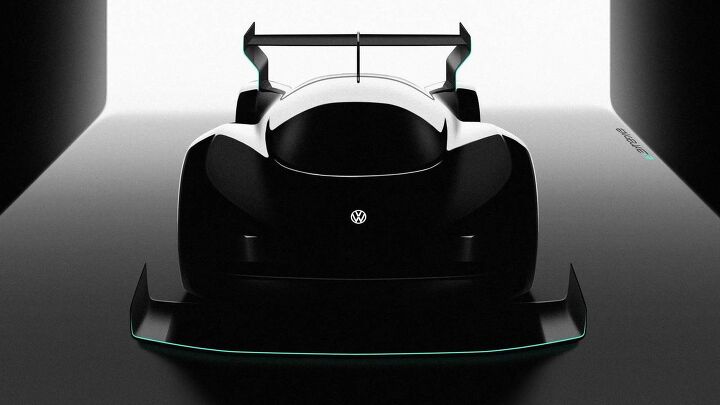



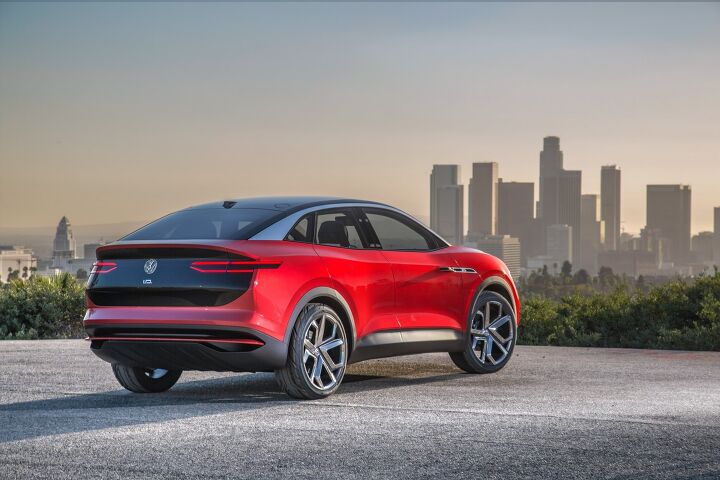
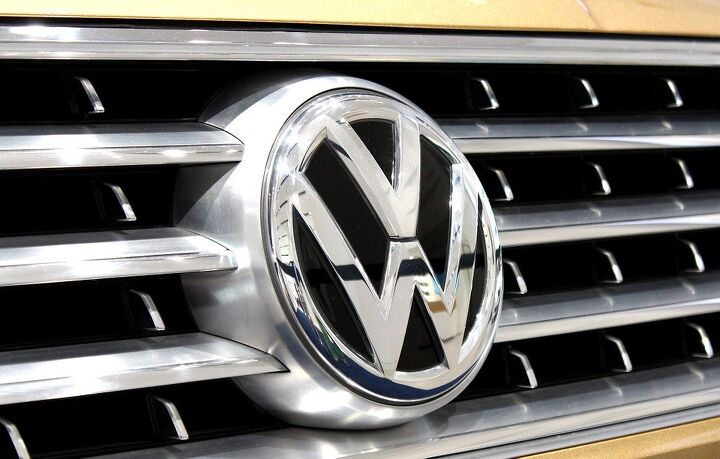
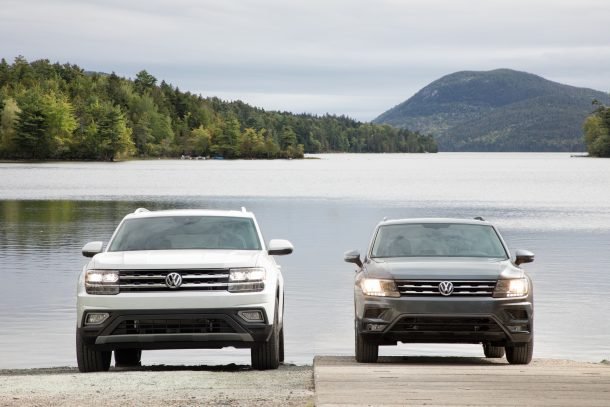



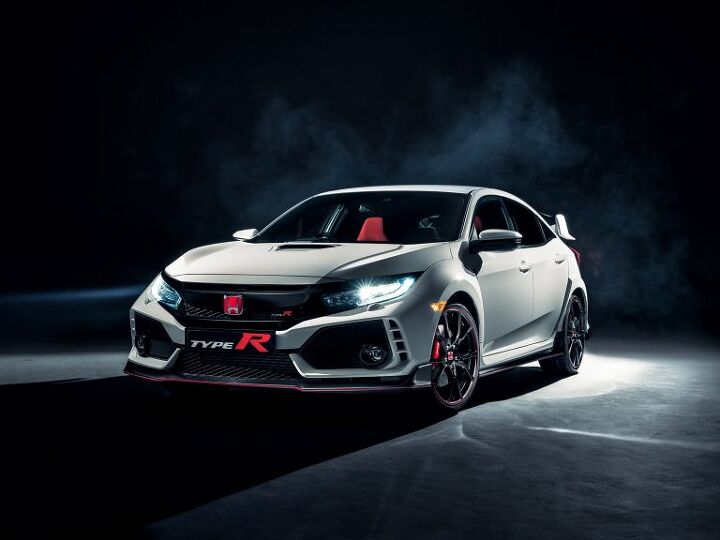

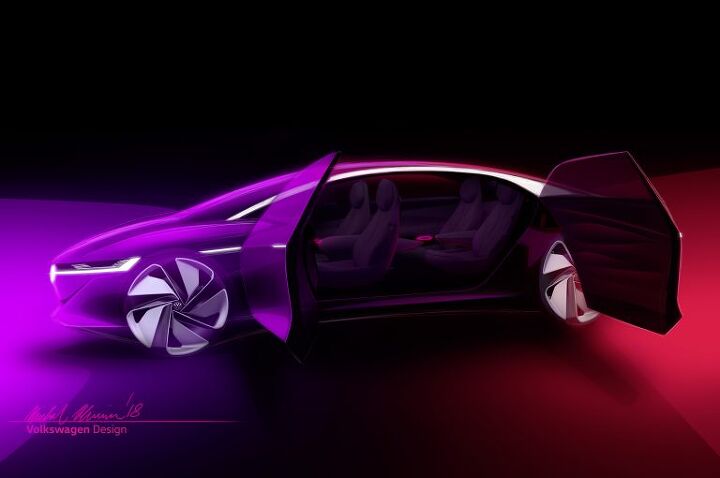
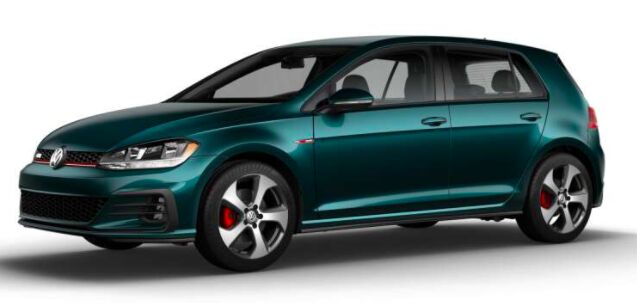

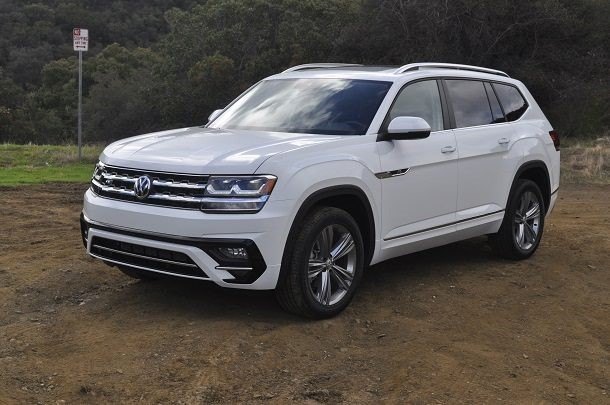

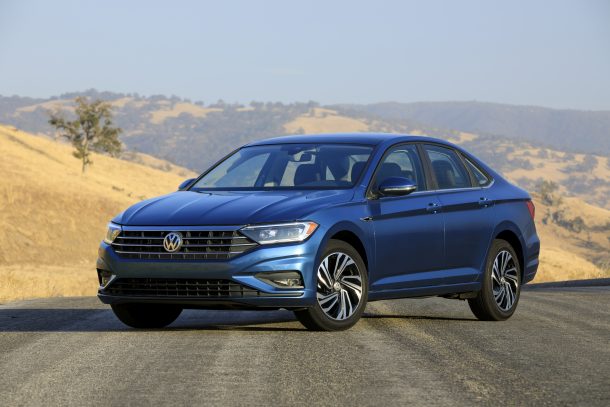
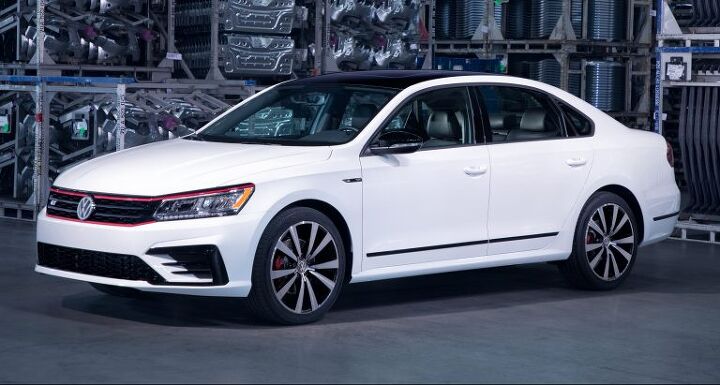




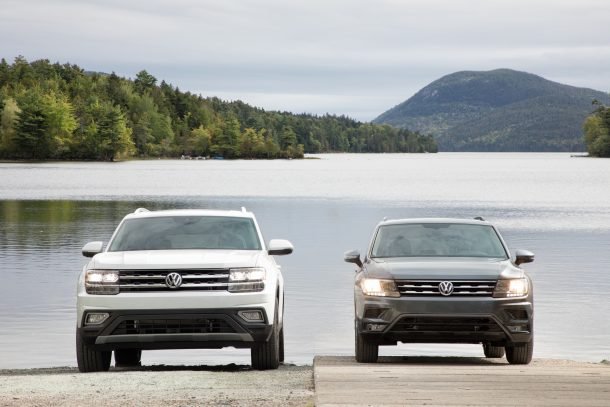
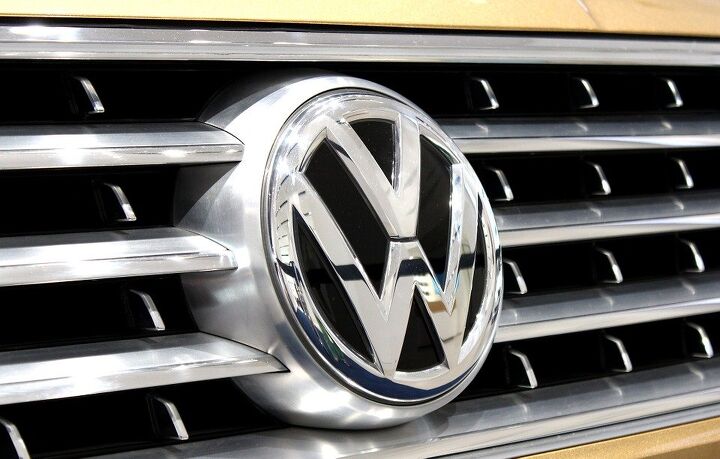
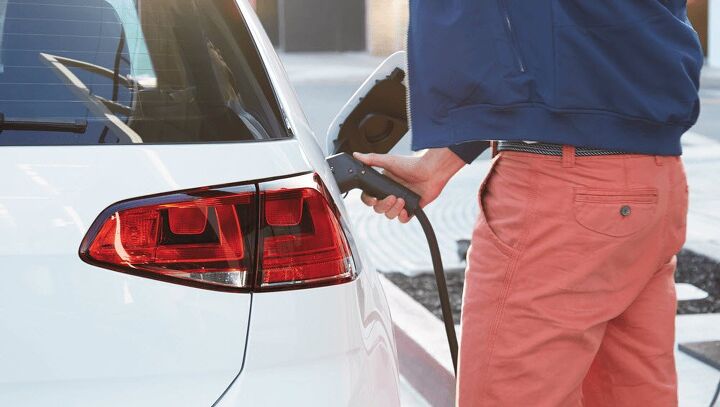


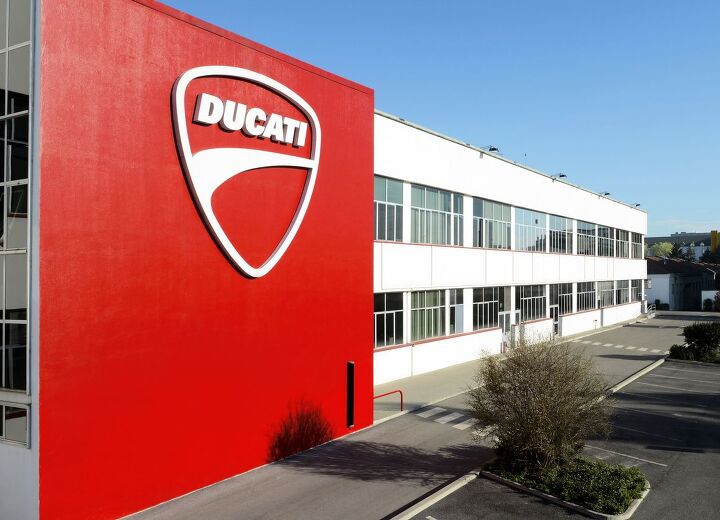
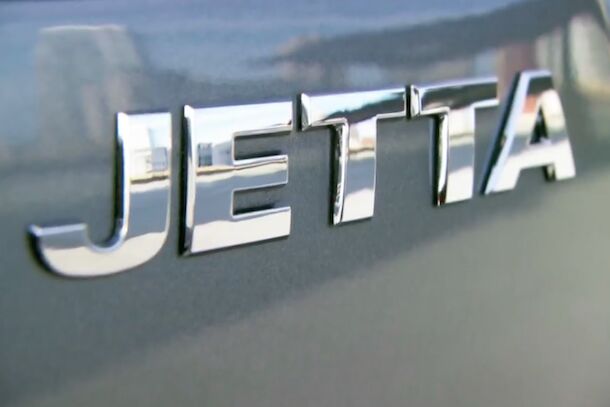
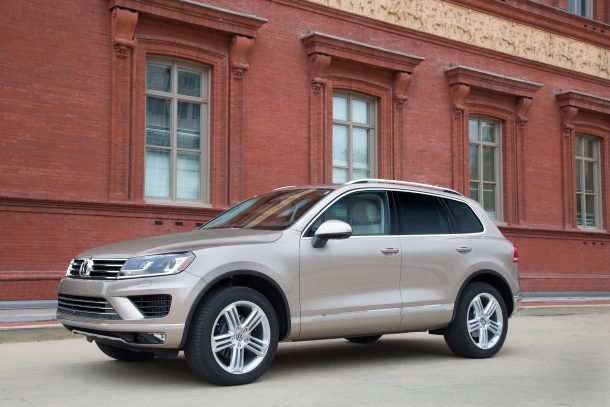

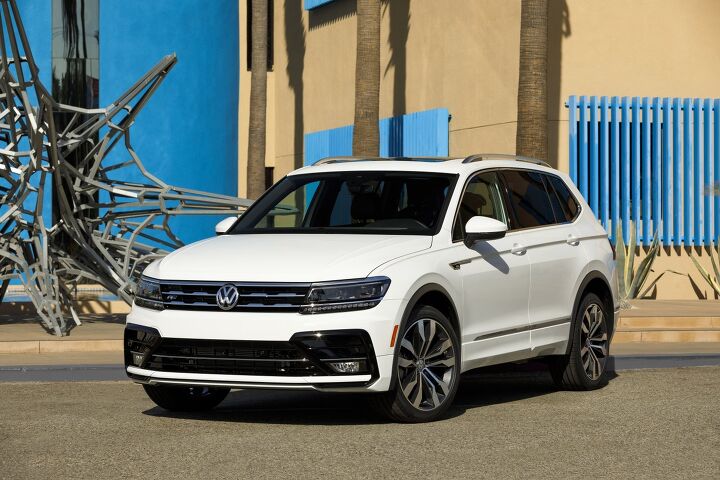
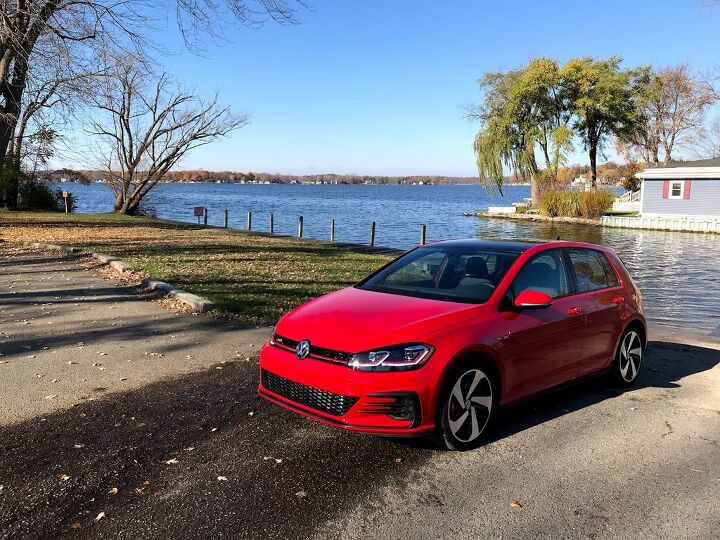
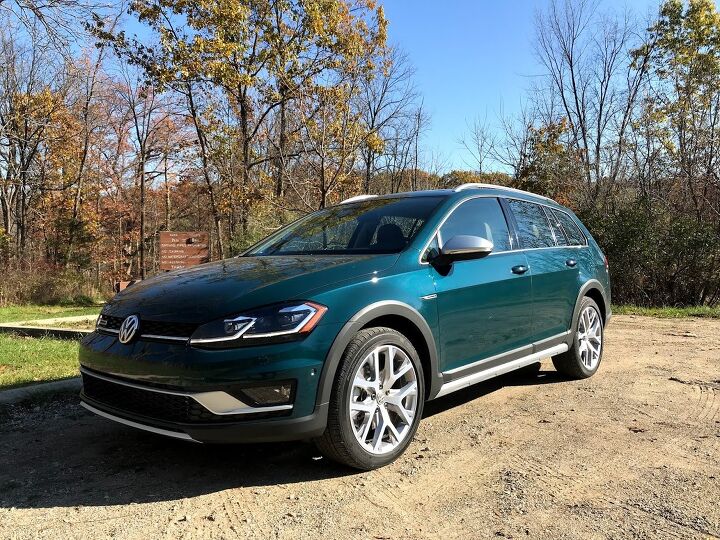
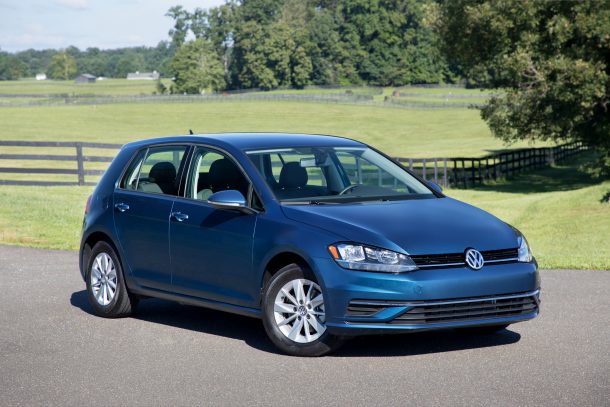
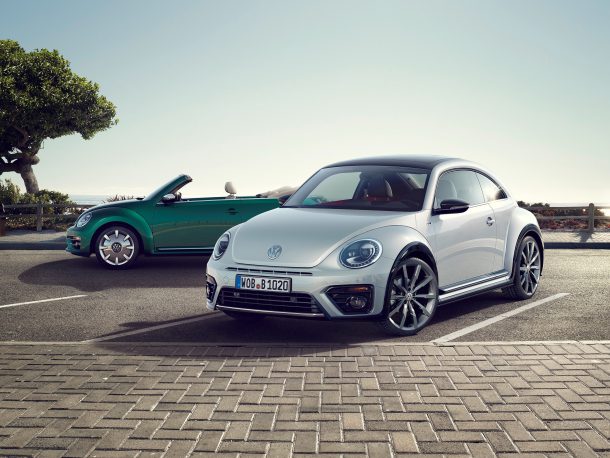
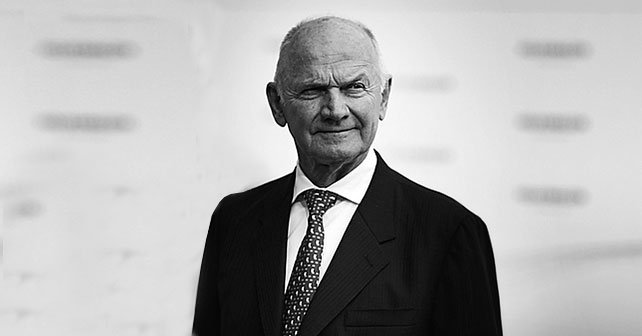
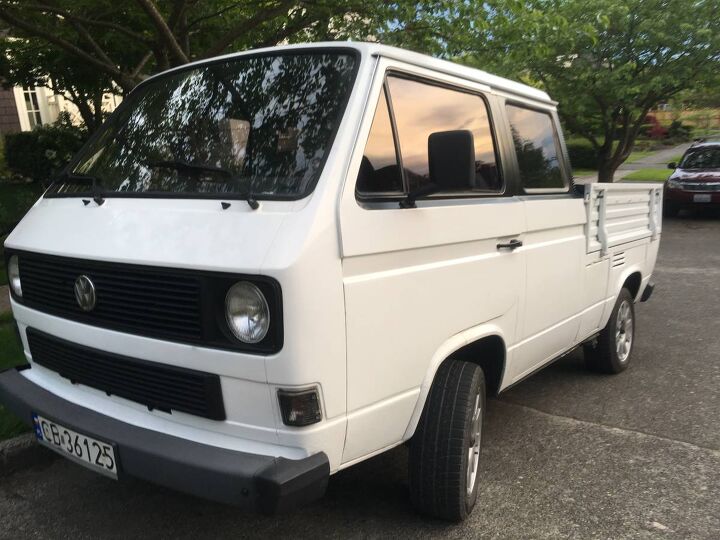

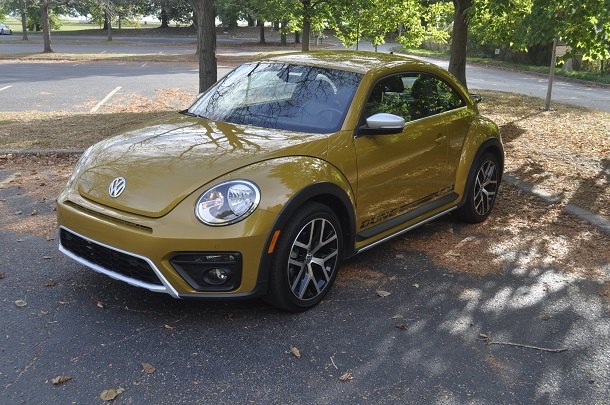
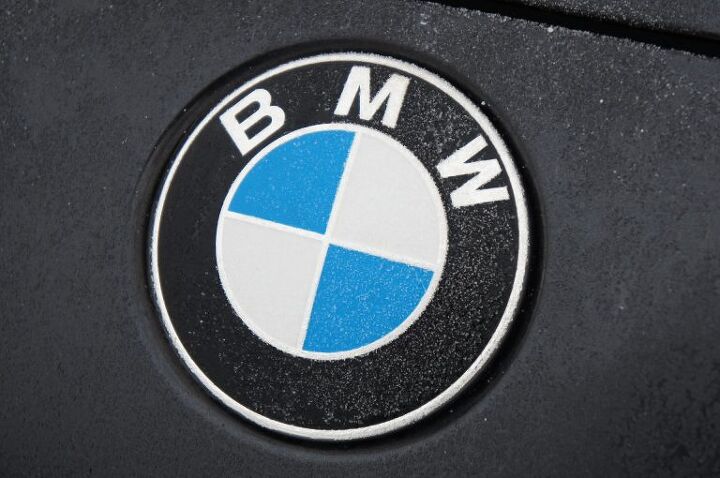


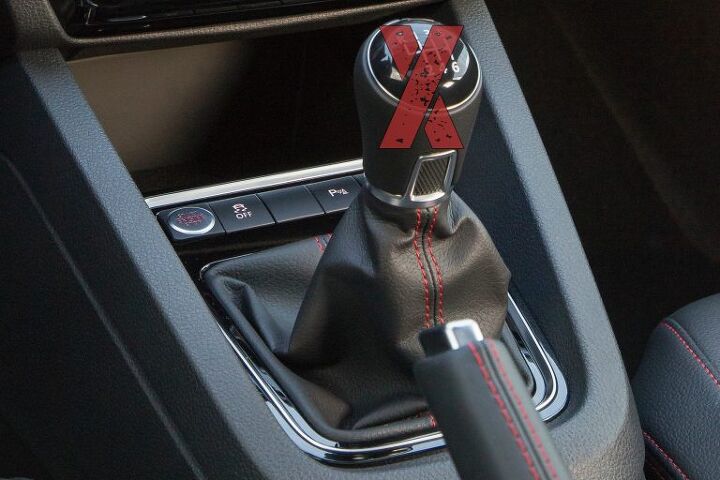
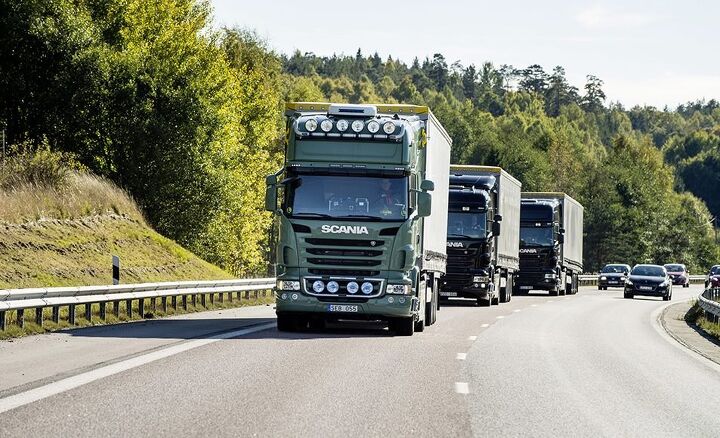
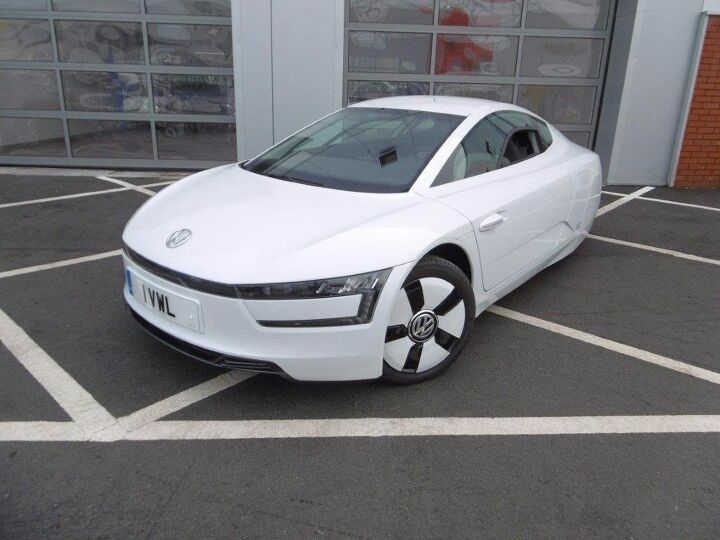
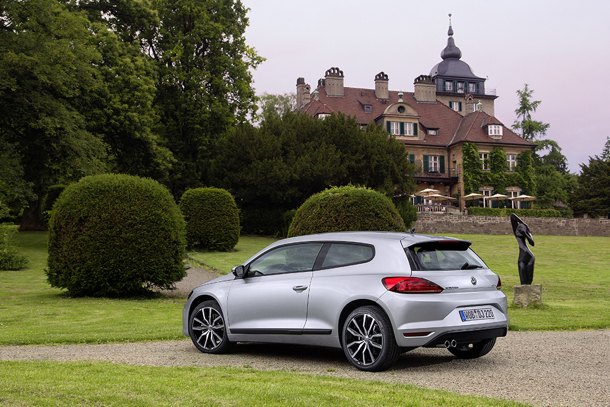

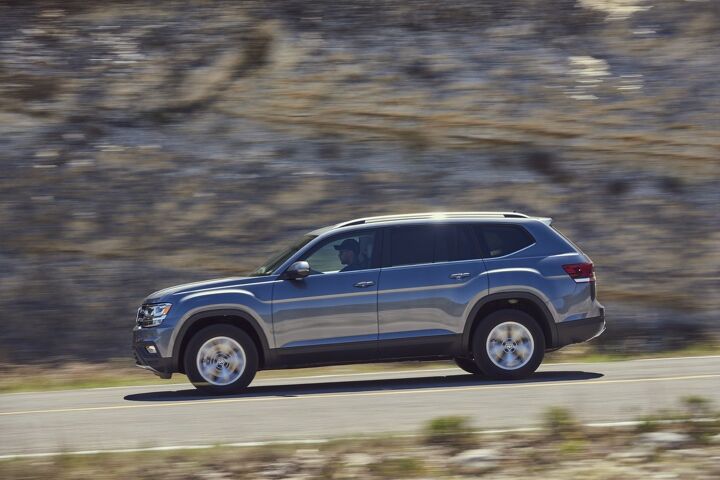
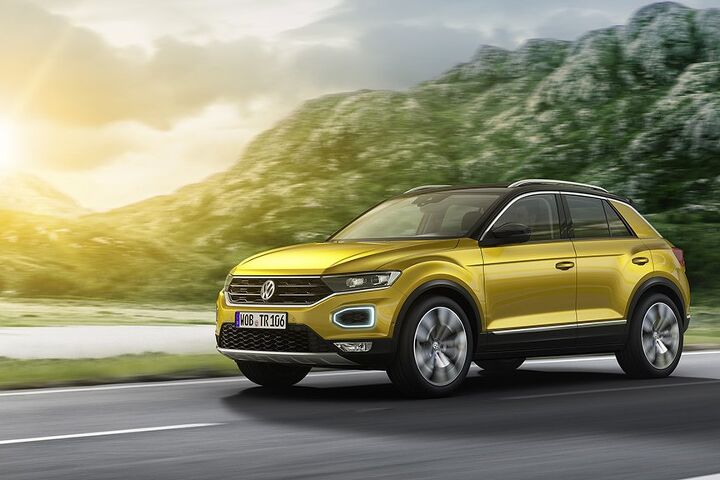
















Recent Comments